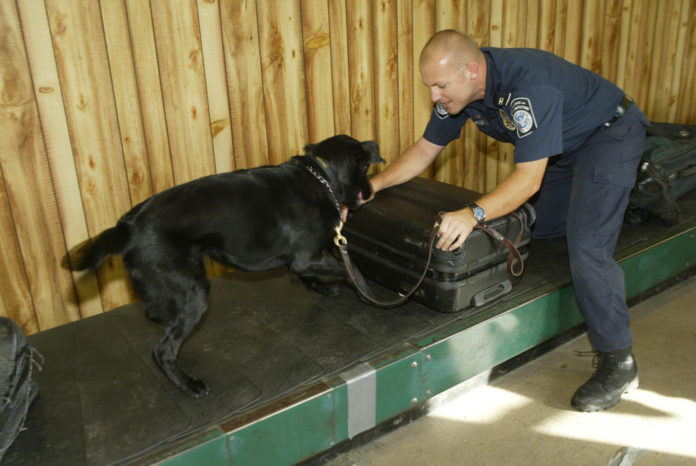
U.S. Customs and Border Protection (CBP) announced today a new formal partnership arrangement with Southwest Airlines Co. as part of the Donations Acceptance Program.
Under this partnership arrangement, Southwest Airlines will provide CBP with discarded luggage available at air ports of entry where both partners operate.
CBP will in turn use this luggage to train canines to search for and detect narcotics, weapons, and other illegal contraband entering and leaving the United States.

“CBP is pleased to announce its first corporate partnership with a major airline for the provision of canine training aids,” said Todd C. Owen, Executive Assistant Commissioner, Office of Field Operations.
“These training aids are important in helping CBP achieve its mission of safeguarding America’s borders and protecting the public from dangerous people and materials.”
On a typical day in 2017, CBP officers seized 5,863 pounds of illicit narcotics across the nation.
(Learn More about U.S. Customs and Border Protection (CBP) canine training applications, such as this partnership with the U.S. Department of State and the Republic of Tanzania authorities to help stop the illegal smuggling of ivory and heroin from Tanzania using CBP trained canines. Courtesy of U.S. Customs and Border Protection and YouTube. Posted on Mar 3, 2017.)
CBP and GSA are authorized to accept donations of real property, personal property (including monetary donations) and non-personal services from private sector and government entities pursuant to the Homeland Security Act of 2002.
Accepted donations may be used for port of entry construction, alterations, operations, and maintenance activities.
(Learn More. CBP Canine Enforcement Officer Bob Stone explains how he and his canine partner Ferro, work together at Dulles Airport to keep America safe. Courtesy of U.S. Customs and Border Protection and YouTube. Posted on Aug 29, 2017.)

















